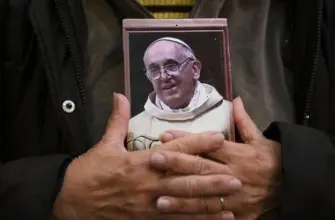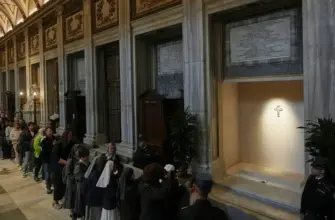EXCERPT: A Plea for Protection – Christian Leaders Urge Trump to Intervene in Afghan Refugee Crisis
As Holy Week concluded, a growing chorus of faith leaders voiced urgent concerns regarding the U.S. government’s impending termination of humanitarian parole for thousands of Afghan nationals, specifically highlighting the perilous situation faced by Christians seeking refuge from Taliban rule. The core issue centered on a shift in policy announced by the Department of Homeland Security (DHS) on April 10th, effectively mandating the departure of these individuals within days.
Initially characterized as an end to Temporary Protected Status (TPS), internal DHS notifications revealed that the affected Afghans were actually under humanitarian parole – a distinction initially misrepresented and perpetuated by media outlets and DHS officials. Following clarification from advocacy groups, this mislabeling was rectified in official documentation.
Approximately 9,000 Afghan individuals, largely awaiting special immigrant visa (SIV) or asylum adjudication, were impacted by the policy change. Among them, estimates suggest hundreds are Christian converts who arrived after the 2021 U.S. withdrawal and now confront a grave threat to their lives under Taliban control. “We believe all 9,000 could face persecution upon return to the Taliban, but we are particularly concerned about a group of hundreds of Christians who we believe will face an immediate threat of torture or death,” stated a coalition memo directed to President Trump, Vice President JD Vance, Secretary Kristi Noem, Speaker Mike Johnson, and Senator Mitch McConnell. The document requested a 90-day pause in deportations to facilitate legal pathways or expedite protection processes.
The proposal included a “vetted and qualified exemptions list,” designed to identify the most vulnerable Christians for reinstatement of humanitarian protections or accelerated asylum or SIV reviews. A case study exemplified this risk: Nashinas, an Afghan Christian tortured by the Taliban in 2021, resettled in Raleigh, North Carolina, and now participates in his local church, yet received a DHS deportation notice despite having filed for asylum.
The Moral Imperative
“This isn’t just a legal issue; it’s a moral one,” declared the Enduring Hope Alliance (EHA), a coalition formed after the 2021 withdrawal. The EHA, comprised of churches, veterans, nonprofits and volunteers, had previously rescued and resettled over a thousand Christian converts and military allies, spending millions in donations and thousands of volunteer hours. “We’re being asked to turn away fellow believers facing real persecution,” stated a source close to the organization.
The situation mirrored concerns raised by former Bush White House official Mike Mannina, who expressed regret over the U.S. withdrawal from Afghanistan and lamented the potential loss of momentum in saving lives. “What followed was one of our finest hours – thousands of everyday Americans stepping up to save lives. I’d hate to see that work undone.”
Rev. Franklin Graham, President of Samaritan’s Purse, noted a shift in timelines, indicating a potential extension until July, based on information he received from Secretary Noem. “No, it did not come up at the White House,” he said, “But I understand from Kristi Noem — she said that I think it’s July, that the Afghans have till July, or the government will work with them till July to get this work solved. So, it looked like they’re going to be deported maybe as of today. That’s what I heard. But … now [it’s] July. So, they’ve got more time to work out this visa issue.” Multiple Afghan Christians received notices giving them seven days to leave the country.
Independent organizations like the U.S. Commission on International Religious Freedom and Human Rights Watch confirmed that Afghan Christians are specifically targeted under Taliban rule – conversion from Islam is punishable by death.
“Afghan Christians are in a more vulnerable position today under the Taliban than even Christians were under ISIS,” an assessment from Help The Persecuted stated.
Josh Youssef, founder of Help The Persecuted, argued that President Trump possesses a critical opportunity to rectify the Biden administration’s handling of the crisis. “We know Christians were beaten, imprisoned and even killed by the Taliban,” he said. “Now, as some of those same people face deportation, President Trump can take a scalpel — not a hammer — and protect those at real risk of death for their faith.” He emphasized that this Good Friday moment demanded action: “It’s unthinkable to send Christians back to a country where they could face their own crucifixion. We’re asking the president to fix this.”
DHS has not publicly confirmed any extension, and the Aug. 26, 2021, suicide bombing at Kabul’s Abbey Gate remains a significant failure of the U.S. withdrawal, further fueling calls for intervention.




